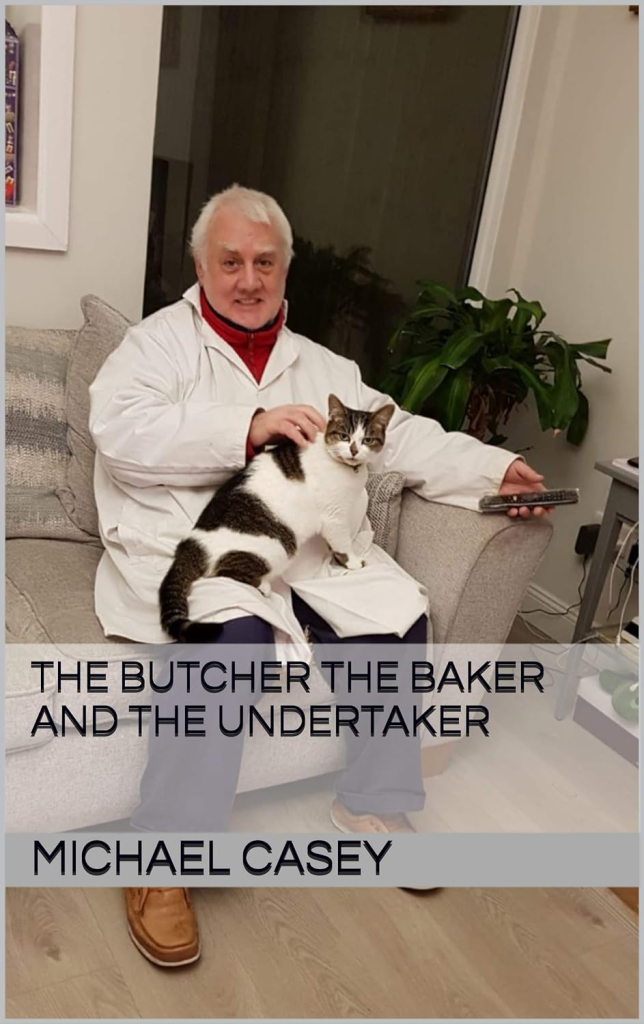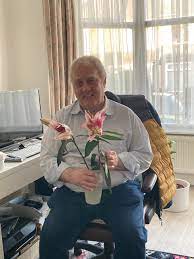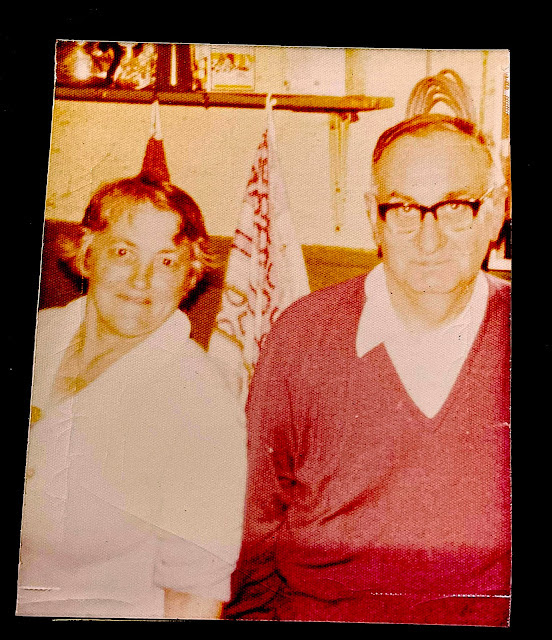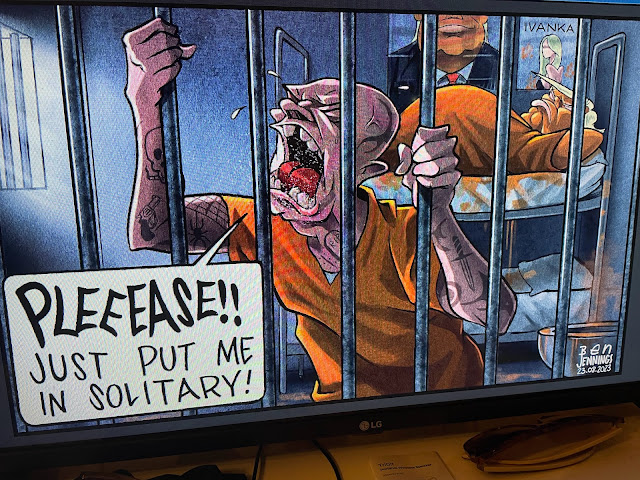for my Russian readers from the. Guardian
«Он не мог дождаться, чтобы присоединиться»: тысячи российских молодых людей погибли в войне на Украине
Москва тратит миллионы, пытаясь воспитать новое поколение, готовое отдать свою жизнь на военной службе.
Петр Зауэр
Ср, 29 мая 2024 г., 13:30 BST
Делиться
Вскоре после того, как в феврале исполнилось 18 лет, Даниил Ермоленко исполнил давнее желание и подписал контракт с российскими вооруженными силами. Месяц спустя он проголосовал впервые, отдав голос на президентских выборах за Владимира Путина, который уже находился у власти шесть лет, когда в 2006 году родился Ермоленко.
К концу марта Ермоленко завершил базовую двухнедельную военную подготовку и был отправлен в Бердичи на востоке Украины, где российские войска вели разрушительную атаку в рамках своего весеннего наступления.
Там 4 апреля во время штурма украинских позиций Ермоленко оказался отделенным от своей части и окруженным интенсивным огнем противника. Сообщается, что прежде чем потерять связь, Ермоленко связался со своей базой по рации: «Вот и все, ребята. Я обречен».
На прошлой неделе его семья и друзья собрались в небольшом городке в центральной России, чтобы получить гроб Ермоленко, задрапированный российским флагом. Церемонию опускания гроба в землю проводил военный оркестр.
Ермоленко - единственный зарегистрированный российский погибший, родившийся в 2006 году, что делает его самым молодым известным солдатом, погибшим с тех пор, как Путин отправил свои войска в Украину более двух лет назад.
«Ему не терпелось присоединиться к боевым действиям, поэтому, когда он достиг совершеннолетия, он воспользовался своим шансом», — сказал его 25-летний брат Максим в телефонном интервью из небольшого городка Красноуфимска, недалеко от Уральских гор, куда он вернулся. с фронта, чтобы присутствовать на похоронах.
Максим записался в армию первым, в 2022 году, вскоре после начала полномасштабного российского вторжения. «Он хотел последовать моему примеру и записаться на военную службу. Я предупреждал его, что война — это некрасиво… но морально он был готов», — сказал он о своем брате.
«Я горжусь Даниилом», — сказал Максим. «Он всегда говорил, что хочет сражаться там с нацистами и фашистами», — добавил он, повторяя некоторые ложные повествования, популяризируемые дома Кремлем, чтобы попытаться оправдать свою войну с Украиной.«On ne mog dozhdat'sya, chtoby prisoyedinit'sya»: tysyachi rossiyskikh molodykh lyudey pogibli v voyne na Ukraine Moskva tratit milliony, pytayas' vospitat' novoye pokoleniye, gotovoye otdat' svoyu zhizn' na voyennoy sluzhbe. Petr Zauer Sr, 29 maya 2024 g., 13:30 BST Delit'sya Vskore posle togo, kak v fevrale ispolnilos' 18 let, Daniil Yermolenko ispolnil davneye zhelaniye i podpisal kontrakt s rossiyskimi vooruzhennymi silami. Mesyats spustya on progolosoval vpervyye, otdav golos na prezidentskikh vyborakh za Vladimira Putina, kotoryy uzhe nakhodilsya u vlasti shest' let, kogda v 2006 godu rodilsya Yermolenko. K kontsu marta Yermolenko zavershil bazovuyu dvukhnedel'nuyu voyennuyu podgotovku i byl otpravlen v Berdichi na vostoke Ukrainy, gde rossiyskiye voyska veli razrushitel'nuyu ataku v ramkakh svoyego vesennego nastupleniya. Tam 4 aprelya vo vremya shturma ukrainskikh pozitsiy Yermolenko okazalsya otdelennym ot svoyey chasti i okruzhennym intensivnym ognem protivnika. Soobshchayetsya, chto prezhde chem poteryat' svyaz', Yermolenko svyazalsya so svoyey bazoy po ratsii: «Vot i vse, rebyata. YA obrechen». Na proshloy nedele yego sem'ya i druz'ya sobralis' v nebol'shom gorodke v tsentral'noy Rossii, chtoby poluchit' grob Yermolenko, zadrapirovannyy rossiyskim flagom. Tseremoniyu opuskaniya groba v zemlyu provodil voyennyy orkestr. Yermolenko - yedinstvennyy zaregistrirovannyy rossiyskiy pogibshiy, rodivshiysya v 2006 godu, chto delayet yego samym molodym izvestnym soldatom, pogibshim s tekh por, kak Putin otpravil svoi voyska v Ukrainu boleye dvukh let nazad. «Yemu ne terpelos' prisoyedinit'sya k boyevym deystviyam, poetomu, kogda on dostig sovershennoletiya, on vospol'zovalsya svoim shansom», — skazal yego 25-letniy brat Maksim v telefonnom interv'yu iz nebol'shogo gorodka Krasnoufimska, nedaleko ot Ural'skikh gor, kuda on vernulsya. s fronta, chtoby prisutstvovat' na pokhoronakh. Maksim zapisalsya v armiyu pervym, v 2022 godu, vskore posle nachala polnomasshtabnogo rossiyskogo vtorzheniya. «On khotel posledovat' moyemu primeru i zapisat'sya na voyennuyu sluzhbu. YA preduprezhdal yego, chto voyna — eto nekrasivo… no moral'no on byl gotov», — skazal on o svoyem brate. «YA gorzhus' Daniilom», — skazal Maksim. «On vsegda govoril, chto khochet srazhat'sya tam s natsistami i fashistami», — dobavil on, povtoryaya nekotoryye lozhnyye povestvovaniya, populyariziruyemyye doma Kremlem, chtoby popytat'sya opravdat' svoyu voynu s Ukrainoy.
‘He couldn’t wait to join’: thousands of Russian youth die in Ukraine war
Moscow is spending millions to try to mould a new generation willing to give their lives in military service
Shortly after turning 18 in February, Daniil Yermolenko fulfilled a long-held wish and signed a contract with Russia’s armed forces. A month later, he voted for the first time, casting a ballot in the presidential election for Vladimir Putin, who had already been in power for six years when Yermolenko was born in 2006.
By late March Yermolenko had completed a basic two-week military training, and he was sent to Berdychi in eastern Ukraine where Russian forces were engaged in a devastating assault as part of its spring offensive.
There, on 4 April, during a storming of a Ukrainian position, Yermolenko found himself separated from his unit, surrounded by intense enemy fire. Before losing contact, Yermolenko reportedly radioed his base: “This is it guys. I am doomed.”
Last week his family and friends gathered in a small town in central Russia to receive Yermolenko’s casket, which was draped in the Russian flag. A military orchestra presided over the ceremony where the casket was lowered into the ground.
Yermolenko is the only recorded Russian casualty so far to have been born in 2006, making him the youngest known soldier to have died since Putin ordered his troops into Ukraine more than two years ago.
“He couldn’t wait to join the fighting, so when he came of age he took his chance,” said his brother Maksim, 25, in a telephone interview from the small town of Krasnoufimsk, near the Ural mountains, to where he returned from the frontlines to attend the funeral.
Maksim had signed up for the army first, in 2022, shortly after the start of Russia’s full-scale invasion. “He wanted to follow my example and enlist. I warned him that war isn’t pretty … but mentally he was ready,” he said of his brother.
“I am proud of Daniil,” Maksim said. “He always said he wanted to fight Nazis and fascists there,” he added, repeating some of the false narratives popularised at home by the Kremlin to try to justify its war on Ukraine.

Thousands of young Russians, often referred to as “Generation P” for having lived only under Putin’s presidency, have died fighting in Ukraine. Mediazona, a Russian outlet that tracks war casualties using open sources, has identified nearly 5,000 soldiers under the age of 24 who have died in the war, including 1,400 under the age of 20. The real toll is likely to be much higher, the outlet says.
Russia portrays these fallen men, many of whom hail from the hinterlands, as heroes. And the Kremlin has gone to great lengths to make sure many more young people join the fighting as Putin seeks to re-engineer the country into a militarised society.
Shortly after the war began, Russian authorities amended its laws to allow 18-year-olds like Yermolenko to enter contract service immediately after finishing school. More ambitiously, the Kremlin has embarked on an unprecedented campaign to mould a new generation of Russians eager to enlist in the military.
Ever since Putin came to power in 2000, the Russian government has attempted to impose a state ideology on its youth, investing heavily in pro-government youth organisations. But for years these efforts seemed to be failing, with young Russians often at the forefront of pro-democracy protests and topping polls expressing anti-government sentiments.
The war in Ukraine, however, gave the Kremlin a renewed momentum to indoctrinate teenagers with Putin’s highly aggressive and anti-western version of patriotism.
“We are waging at least three wars,” said Sergei Novikov, a senior Kremlin bureaucrat, in July 2023. “There is the war on the frontlines. There is the economic war. And the third war is an ideological war … a war for the minds of the youth.”
Russia has dramatically increased its spending on patriotic education and state-run militarised groups for children and teens, from £25m in 2021 to more than £382m in 2024. Since the onset of the conflict, public school textbooks have been rewritten to align with the Kremlin’s foreign policy, reflecting Russia’s interpretation of history that emphasises the need to reclaim “historical territories” lost to Ukraine.
Moscow has placed special importance on war veterans, including former convicts from the Wagner group, who have returned home from Ukraine. In a recent speech Putin said more than 1,000 Russian veterans were already employed in schools. Starting in September, many of them will lead compulsory military lessons, which will include training in operating drones and handling Kalashnikovs.

Young Russians are also confronted with more conspicuous, physical reminders of the war. Across schools in Russia, thousands of memorial plaques have been set up to honour former students who died in what is framed as the ultimate sacrifice for the homeland.
In one school in the Siberian city of Bratsk, members of Russia’s youth army, Yunarmiya, gathered in February to inaugurate a memorial dedicated to six graduates. A video report of the event published by a local news outlet showed grieving mothers sitting on a school bench as Yunarmia youth read out poems that glorified war. The video then cuts to a young Yunarmia member introduced as Denis who says he “would like to become a hero like these men”.
The long-term effectiveness of the state’s militarised messaging is still up for debate. “Ideological indoctrination of teens is one of the areas where the Russian state comes closest to being totalitarian,” said Ekaterina Schulmann, a Russian political scientist.
But she pointed to recent polling that showed younger Russians still preferred individualist success over state ideologies. “It is still too early to say how successful the Kremlin has been,” she said.
Schulmann said the massive financial incentives to sign military contracts were likely to play the biggest role in persuading young men to join the army.
In Krasnoufimsk, Maksim Yermolenko stressed he was eager to return to fight. “After my brother’s death, I feel extra motivated to finish the job,” he said.
More than anything, Maksim said he wanted young Russians to follow his sibling’s example. “I hope Daniil’s story will serve as an inspiration for others to enlist.”
YOU CAN SAY NO
YOU CAN REMOVE PUTIN AND STOP HIS PRIVATE WAR
THINK FOR YOURSELVES
CORRUPT PUTIN RICHER THAN AMAZON
WITH HIS GAZPROMM CORRUPTION
JUST SAY NO
follow the Immaculate Heart of Mary
never Putin on the road to Hell
YOU CAN SAY NO
YOU CAN REMOVE PUTIN AND STOP HIS PRIVATE WAR
THINK FOR YOURSELVES
CORRUPT PUTIN RICHER THAN AMAZON
WITH HIS GAZPROMM CORRUPTION
JUST SAY NO
follow the Immaculate Heart of Mary
never Putin on the road to Hell
| ReplyReply to allForwardYou can’t react with an emoji to a large group |



























The ALL file is 1,000,000 words almost, translated, 10 or 11 books
Read a book Russians, don’t die for NOTHING
Let Putin go to hell on his own
a Trillion Dollars on his VANITY
ReplyReply to allForward |






